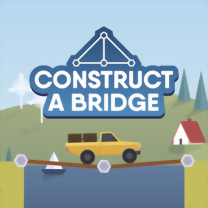Welcome to the fascinating world of Educational Games, where learning transforms into an exhilarating adventure! Imagine diving into a vibrant universe where every level you conquer not only sharpens your mind but also equips you with knowledge that sticks like gum to the bottom of your shoe. Sounds pretty awesome, right? Well, buckle up, because we’re about to explore the unique features, rules, and mechanics that make these games a thrilling way to learn!
First off, let’s talk about the essence of Educational Games. These aren’t your run-of-the-mill quizzes or boring textbooks; they are like the rock stars of the gaming world, combining fun with knowledge. Think of them as a rollercoaster ride through the enchanted forest of knowledge, where every twist and turn unveils a new fact or skill. From math mysteries to language labyrinths, there’s a game out there for everyone! And who doesn’t want to solve a puzzle while simultaneously brushing up on their vocabulary? It’s like multitasking, but on steroids (the legal kind, of course)!
Now, let’s delve into the mechanics. Most Educational Games are designed to engage the player actively. You’re not just sitting there like a potato; you’re a brave knight battling dragons of ignorance! Players often need to complete various tasks, solve challenges, or answer questions correctly to progress. And oh boy, there’s usually a cool reward system in place. Think of it as a treasure chest filled with shiny coins for every correct answer. Who wouldn’t want to collect a few digital shinies while learning about the solar system?
One of the unique features of these games is their adaptability. They often cater to different learning styles—visual, auditory, or kinesthetic. Like a buffet of knowledge, you can choose how you want to feast! Whether you’re a visual learner who loves colors and diagrams or an auditory learner who thrives on stories and sound effects, there’s something for everyone. It’s like having your cake and eating it too, but the cake is actually a giant slice of knowledge!
And let’s not forget about the social aspect! Many Educational Games include multiplayer options, allowing you to team up with friends or compete against them. Imagine the thrill of working together to solve a math equation or racing against each other to spell the longest word. It’s like a friendly game night, but with a dash of brainpower thrown in. Can you say “learning is fun”? Absolutely!
In conclusion, Educational Games are not just about hitting the books; they are about diving headfirst into an ocean of knowledge while riding the waves of excitement. So, the next time you think about studying, why not grab a controller instead? Learning can be a blast, and these games are living proof that getting smarter can be as enjoyable as a pizza party with friends!



